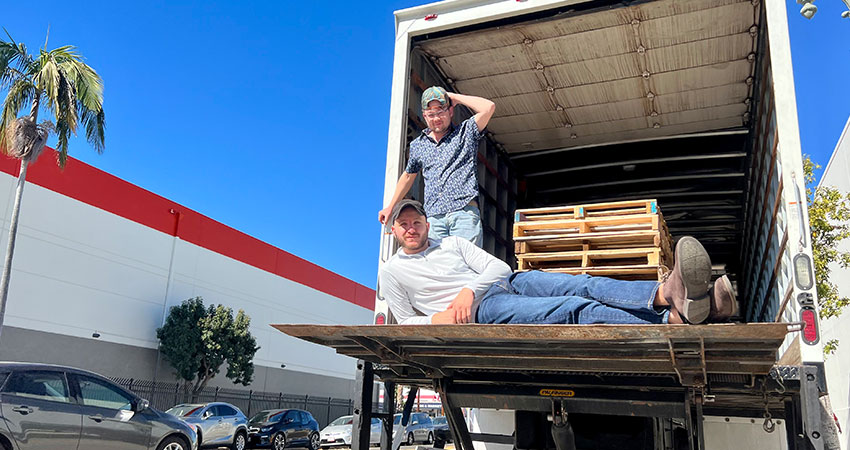Warp, providers of a software platform connecting smaller middle mile carriers and cross-dock facilities with SMB shippers, has exited stealth mode with a $2.4 million seed round as it expands to more markets, working toward its vision of a coast-to-coast LTL network.
The round was led by Bee Partners with participation from Amplify, among others.
Warp works by weaving together digital pooling and physical consolidation points, which it calls Warp Stations, offering shippers middle-mile services at a less expensive price point than traditional carriers. Its system connects to a shipper’s TMS, WMS or carrier management system and a carrier’s driver app, giving shippers pallet-level tracking throughout a shipment’s journey.
Warp was co-founded by Daniel Sokolovsky, founder of last mile platform Axlehire and Troy Lester, the founder of Axlehire acquisition Covet Shipping. Both saw a massive opportunity for technology disruption and optimization of LTL, as it continues to grow rapidly along with greater distribution of inventory closer to end customers. They look to serve the vast majority of shippers that don’t have the volume to drive full truckload shipments.
“The market size for middle mile is just enormous and there is a lot of room for modernization,” said Tim Smith, a partner at Bee Partners, in a release. “Freight has been notoriously behind last mile when it comes to new technology and innovation,” “When Daniel and Troy brought us the idea for Warp, we knew we wanted to get in at inception.”
Sokolovsky said most carriers on the Warp platform are smaller operations with 1-25 trucks, and the cross-dock facilities run from 25,000 to 50,000 square feet. He said shippers benefit from tracking, transparency and pricing, and access to greater capacity, while carriers and facility operators get a new revenue stream. Warp’s ability to gather and process data on LTL shipments helps connect shippers with the exact right type of vehicle and capacity for each load.
“We’ve stitched together a similar service offering to Old Dominion, Yellow, Saia and others, without our own assets,” Sokolovsky said. “Most importantly, we own the platform and the process. It’s similar to a franchise model for carriers, taking part in our revenue stream, perform work for our customers, while we optimize the back office. Smaller operators have more revenue and an easier way to do it.”
Warp currently operates in California, the New York tri-state area and Texas, focusing on fast-moving consumables such as food and beverage and household goods. Service nodes include stores, micro fulfillment centers, cloud kitchens and direct injections into last-mile carriers.
With the new funding, Sokolovsky said Warp has plans to expand soon into Chicago, Atlanta and the Miami-Orlando area, and is open to contract work in other markets. “The platform is geography agnostic, we can just go out and onboard more carriers,” Sokolovsky said.
Warp also hopes to address capacity shortfalls with the larger carriers that send shippers scrambling, as well as service level and lead time issues.
“You can put an order in, and have no idea when pickup will be,” he said. “The service quality is so bad you almost want to pay thousands. A lot of freight shippers, when they ship LTL, they’re out of options, either use the most expensive carriers or the cheaper guys, and you just never know with them. Warp provides delivery and pickup guarantees, at a price point that’s more reasonable for smaller shippers.”

